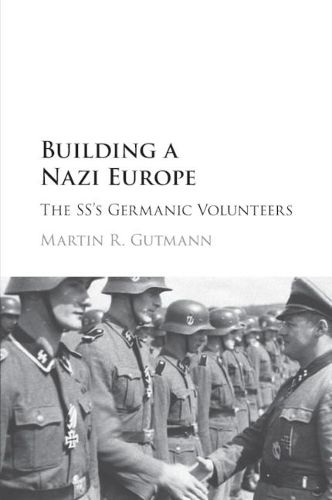Readings Newsletter
Become a Readings Member to make your shopping experience even easier.
Sign in or sign up for free!
You’re not far away from qualifying for FREE standard shipping within Australia
You’ve qualified for FREE standard shipping within Australia
The cart is loading…






In a compelling new study, Gutmann offers an in-depth examination of the Swedish, Swiss and Danish men who worked and fought for the SS, during the Second World War. Dispelling a host of myths regarding foreign collaboration with Hitler’s regime, it reveals how these men were highly motivated to affect a National Socialist revolution across North-Western or ‘Germanic’ Europe. Working behind Berlin desks, they played a pivotal part in shaping the Nazi New Order and actively participated in the regime’s brutal atrocities on the Eastern Front and on the streets of Western Europe. The book argues that these men became a focal point for infighting in the regime regarding the role of non-Germans in National Socialism. Building a Nazi Europe sheds new light on historical conceptions of fascism, collaboration, transnational history and the Holocaust.
$9.00 standard shipping within Australia
FREE standard shipping within Australia for orders over $100.00
Express & International shipping calculated at checkout
In a compelling new study, Gutmann offers an in-depth examination of the Swedish, Swiss and Danish men who worked and fought for the SS, during the Second World War. Dispelling a host of myths regarding foreign collaboration with Hitler’s regime, it reveals how these men were highly motivated to affect a National Socialist revolution across North-Western or ‘Germanic’ Europe. Working behind Berlin desks, they played a pivotal part in shaping the Nazi New Order and actively participated in the regime’s brutal atrocities on the Eastern Front and on the streets of Western Europe. The book argues that these men became a focal point for infighting in the regime regarding the role of non-Germans in National Socialism. Building a Nazi Europe sheds new light on historical conceptions of fascism, collaboration, transnational history and the Holocaust.